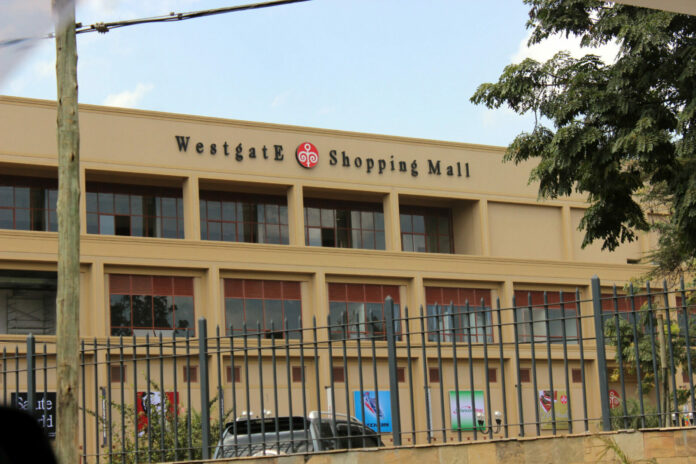The Westgate Shopping Mall, located in the vibrant Westlands division of Nairobi, Kenya, was once a bustling hub of luxury shopping and entertainment.
This five-storey mall opened its doors to the public in 2007 and quickly became a popular destination for Kenya’s new consumer class, as well as foreign officials and expatriates.
With more than 90 stores and 350,000 square feet of retail space, the mall boasted anchor tenants Nakumatt and Planet Media Cinemas, along with globally renowned brands like Adidas, Bata Shoes, and Samsung Mobile.
Inside Westside Mall, the biggest shopping center in Nakuru and it’s owner
The mall also housed a Barclays Bank branch, Artcaffe, and Millionaires Casino on the ground and second floors respectively.
The year 2013 saw the mall transforming into a place of horror, as it was the site of a catastrophic terrorist attack that shook the world.
Nevertheless, the mall’s reopening after the attack symbolizes the fortitude and unwavering spirit of the Kenyan populace, who were determined not to let the tragedy cast a shadow over their city.
In this article, we will explore the fascinating history of the Westgate Shopping Mall, from its inception in 2007 as a luxury shopping destination to the devastating terrorist attack it suffered in 2013.
Owner
The Westgate Shopping Mall is owned by Sony Holdings, an Israeli-based company that is owned by Alex Trachtenberg and Vishiali Madan.
According to a local daily, in 2013, Sony Holdings was defeated in a trade name dispute against Japanese electronics giant, Sony Corporation.
The property developer’s attempt to register ‘Sony’ as its exclusive trademark in Kenya came to an end.
Meet the owners behind Kenya’s most luxurious five-star hotels
The following year, in 2014, the management company hired IRG, an Israeli security company, to provide security and train personnel operating in the mall.
2013 Terror Attack
In September 2013, a team of four assailants affiliated with the al-Shabaab militant group entered the Westgate Mall, equipped with guns and grenades.
They launched an indiscriminate assault on shoppers and workers, and took several hostages. The incident dragged on for four days, during which the attackers caused significant damage to the mall’s infrastructure.
The atrocity claimed the lives of no fewer than 68 people and caused injuries to over 200 others, including men, women, and children from various backgrounds.
The attack was met with widespread condemnation from the international community, and Kenyan authorities made relentless efforts to bring the perpetrators to justice.
Reopening
After the attack, the Westgate Mall remained closed for nearly two years as authorities worked to repair the damage and strengthen security measures. In July 2015, the mall finally reopened its doors to the public, amidst mixed reactions.
Some hailed the reopening as a symbol of Nairobi’s resilience in the face of adversity, while others criticized it as disrespectful to the victims of the attack. Many suggested that the mall should have been converted into a memorial site or a place of worship, to honor those who lost their lives in the tragedy.
Investors behind Sh. 1.6 billion Golden Life Mall in Nakuru
Despite the criticism, the reopening of the Westgate Mall represented a major milestone in the city’s recovery from the attack.
Many of the mall’s previous tenants returned to their shops, and new security measures were put in place to ensure the safety of shoppers and employees.








